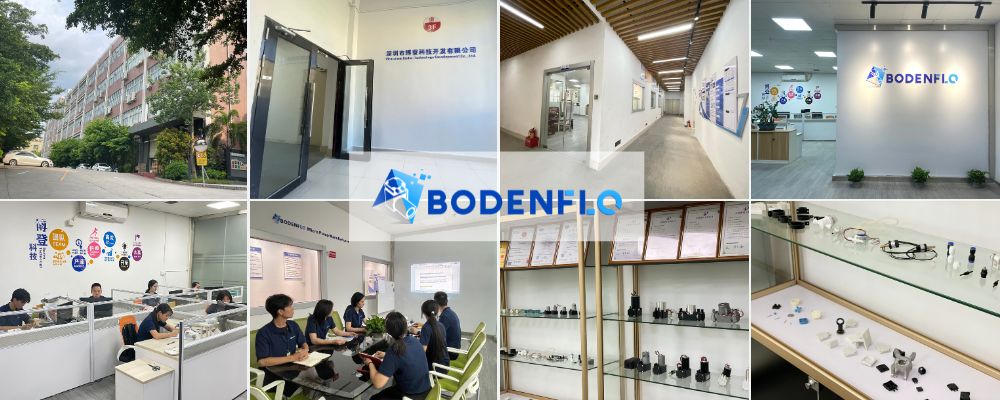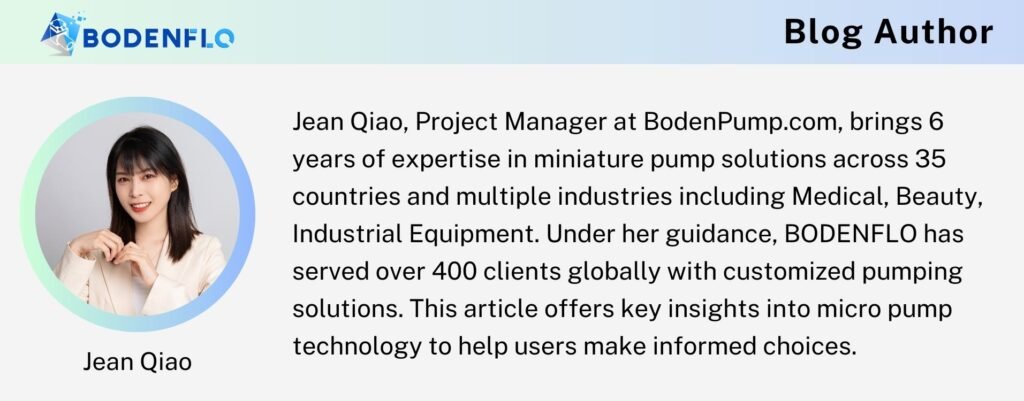
Navigating the landscape of the micro pump industry can be complex, particularly when it comes to compliance and certifications. Ignoring or overlooking required certifications can have significant consequences, ranging from financial penalties to loss of market access. Hence, understanding which certifications are vital for your micro pumps is not only smart but necessary.
Yes, there are several certifications that are often required for micro pumps. These include but are not limited to ISO certifications for quality management, and CE marking for compliance with European safety, health, and environmental requirements. Obtaining these certifications ensures product reliability and can be a prerequisite for doing business in certain markets.
Being well-versed in the certifications can give you an edge in both product quality and marketability. Read on to discover what each certification entails and how to go about acquiring them.
Why Are Certifications Important?
In the B2B landscape, particularly in sectors like micro pump manufacturing, certifications are not just a nice-to-have; they are often a business imperative. These certifications serve multiple crucial functions, laying the groundwork for successful market penetration, long-term partnerships, and sustainable growth.
Certifications act as a seal of quality and safety, ensuring that a product has met stringent industry standards. They are verifiable proof that a micro pump is manufactured according to best practices, and that it passes required tests for performance, durability, and reliability.
By securing certifications, manufacturers can differentiate their products from competitors who may not have these accreditations. Certified products are generally more appealing to procurement officers and distributors, who are always on the lookout for high-quality, reliable solutions. Certifications can be particularly important for entering foreign markets, where trust and credibility are paramount. Moreover, having the right certifications can also streamline customs and import processes, making it easier to bring your products to market.
In essence, certifications are a valuable asset that builds trust between manufacturers, suppliers, and customers, acting as an important catalyst for business growth and market reputation.
Commonly Required Certifications?
In the world of micro pumps, adherence to certifications is non-negotiable. These certifications not only enforce a rigorous standard of quality but also serve as a critical component for market entry and consumer trust.

- ISO 9001: is a universal standard for quality management systems. It’s applicable across industries and assures that your operations meet a global standard for quality.
- CE Mark: CE Marking is obligatory for products sold within the European Economic Area (EEA) and signifies conformity with health, safety, and environmental standards.
- RoHS Compliance: RoHS Compliance limits the use of specific hazardous materials found in electrical and electronic products. This is crucial for those dealing in electronic components.
- FDA Approval: is imperative for micro pumps that are part of medical devices in the United States, ensuring they meet stringent health and safety guidelines.
- UL Certification:primarily pertains to the U.S. and Canada and is a recognized symbol of safety. It is often a purchasing criterion for buyers focusing on quality and reliability.
These certifications not only validate the quality and safety of the micro pumps but also facilitate their adoption in various applications and regions. Knowing the certifications required for your specific needs is key to making an informed purchasing decision.
Country-Specific Certifications?
Navigating the labyrinth of certifications becomes even more intricate when we consider country-specific regulations. These localized certifications can serve as both a barrier to entry and a mark of exceptional quality, influencing purchasing decisions in those markets.

For instance, in the United States, certifications like FDA Approval for medical applications, FCC and UL Certification for safety are often mandatory.
In the European Union, the CE Mark is an essential certification indicating that products comply with EU safety, health, and environmental requirements. Similarly, Russia requires a GOST-R certificate, which attests to a product's compliance with Russian safety laws.
For markets in Asia, like Japan and South Korea, there are also unique certifications. In Japan, the JIS (Japanese Industrial Standards) certification is highly regarded, while in South Korea, the KC (Korea Certification) mark is essential for products imported into the country.
Australia has its own set of safety standards and certifications managed by the Australian Competition and Consumer Commission (ACCC), while Brazil mandates INMETRO certification for a broad range of goods.
Understanding these country-specific certifications is not just a matter of compliance but is also strategic. It positions your product as meeting the highest quality standards of that particular market, providing a significant competitive advantage. Hence, it's crucial to be well-versed in the certifications necessary for the countries you are targeting to ensure smooth market entry and sustained sales growth.
How to Obtain Certifications?
The certification process can often seem daunting, but it is a non-negotiable step for ensuring your products meet industry standards and gain acceptance in your target markets.
Firstly, the process typically starts with identifying the relevant certifications needed for your product, based on both the industry you are in and the countries you aim to sell to.

Once identified, the next step involves a deep dive into the criteria and testing procedures for each certification. This will likely require consultation with experts and perhaps even modification of your product to ensure compliance.
Following this, a formal application process ensues, usually requiring extensive documentation, product samples, and a fee. For certifications like ISO 9001, the application is generally accompanied by a quality audit conducted by a recognized third-party organization.
After the successful submission of your application and passing all necessary tests and audits, the certification body will grant the certification, which may also require periodic renewal or retesting.
The time frame for obtaining certifications varies but is often a lengthy process. Therefore, it’s prudent to plan well in advance. Certifications can be a complex web of regulations and red tape, but they are indispensable in validating your product's quality and facilitating its success in multiple markets.
To sum it up, obtaining certifications is a meticulous but essential process that requires in-depth understanding, careful preparation, and precise execution. It's not just a rubber stamp, but a rigorous process that can add significant value to your product and brand.
How to Verify Certifications?
Understanding the complexities of certifications is a crucial step in ensuring both the quality and credibility of your product.
Verification often begins by checking the certification numbers and details against the issuing body's database or official documentation.

Depending on the certification, specific online platforms may be available for verification. For example, ISO certifications can often be verified through the ISO's official website or through accredited certifying bodies.
Moreover, it's essential to validate the scope of the certification to ensure it applies to the specific type of product or service in question. Certifications can have different levels or categories, each with their own set of criteria.
Further, it is also prudent to verify the expiration date of the certification. Some certifications require annual renewals or periodic audits. Failing to maintain current certifications can result in non-compliance penalties.
Lastly, for certifications such as the CE Mark or FDA Approval, you may need to examine the accompanying documentation for more granular information, such as test results or compliance records.
In summary, verifying certifications is not a task to be taken lightly. It requires meticulous attention to detail and sometimes a deep dive into databases and documentation. The benefits, however, are invaluable: not only do you ensure compliance with laws and regulations, but you also gain a competitive edge by instilling customer trust in the quality and safety of your products.
Conclusion
Being aware of the required certifications for miniature pumps ensures you're compliant with regulations, and it gives you a foothold in international markets. For businesses seeking reliable and certified micro pumps, BODENFLO is your go-to supplier with a range of certified products.

Reach out to BODENFLO for certified, reliable, and high-performing micro pumps. We prioritize both quality and compliance, making us a trusted partner for your business.


